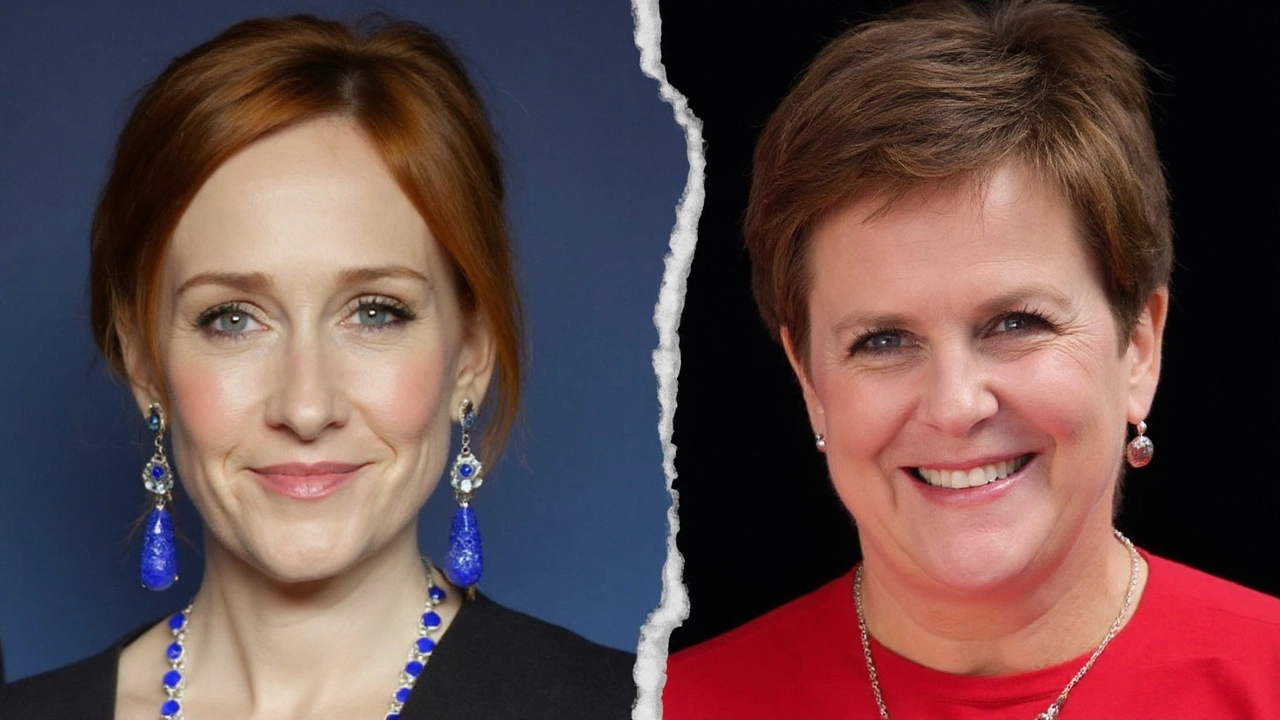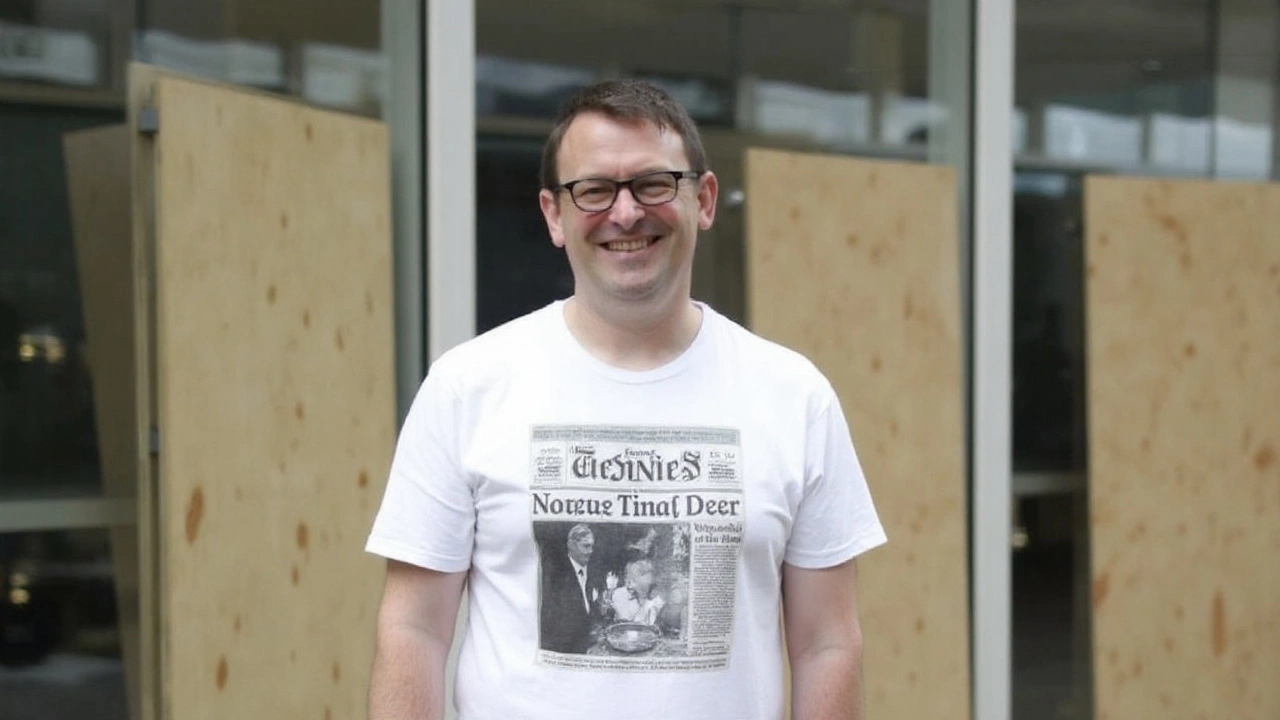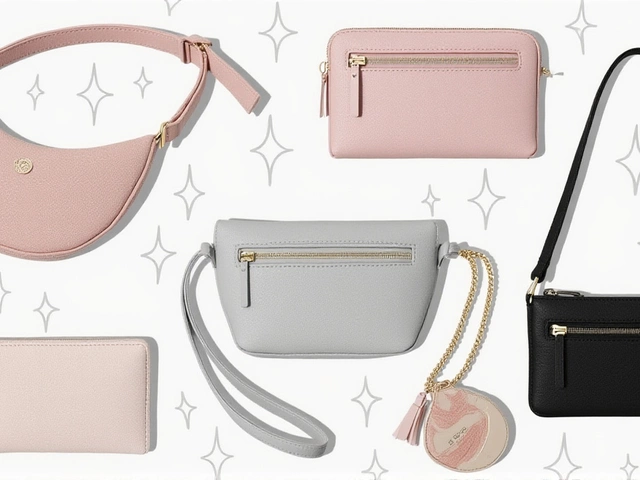
A blistering review that reignites an old fight
JK Rowling didn’t just review Nicola Sturgeon’s memoir. She unloaded. In a near 3,000-word post published on August 14, 2025, the Harry Potter author accused Scotland’s former First Minister of Trump-like denial, self-absorption, and a wilful refusal to face the fallout of the gender reform fight that helped define Sturgeon’s final years in office.
Rowling’s piece, titled “The twilight of Nicola Sturgeon,” landed with sharpened edges and a pop-culture sting. She compared Sturgeon to Twilight’s Bella Swan, cast her as “flat out Trumpian” in her handling of facts, and accompanied the review with an AI-style image of Sturgeon in a moody forest with wolves and vampires. It wasn’t subtle. It was designed to dominate the conversation—and it did.
At the heart of Rowling’s argument is a charge she’s repeated for years: that Sturgeon championed policies on gender self-identification without regard for the consequences for women and girls. “Luxury beliefs” is the label Rowling used—ideas that she says are fashionable among the powerful, but costly for those with less voice. Her line that Sturgeon “remains stubbornly wedded” to letting “some men into women’s spaces on the men’s say so” goes to the core of the row that split Scotland’s politics in two.
Rowling didn’t stick to policy. She revisited a personal flashpoint Sturgeon cites in her memoir: a photo Rowling shared of herself in a shirt calling Sturgeon the “Destroyer of Women’s Rights.” Sturgeon has written that the moment made her fear for her safety. Rowling pushed back, saying she never blamed Sturgeon for the abuse she received from pro-independence activists in earlier disputes, even when the attacks were graphic and targeted.
The close wasn’t conciliatory. Rowling contrasted Sturgeon with Bella Swan one last time—“not a Good Vampire,” in her words—accusing the former leader of helping to create a culture where women who disagreed on gender policy were “silenced, shamed, persecuted,” and exposed to degrading treatment.
Sturgeon answered live on BBC Radio Ulster’s Nolan Show. She leaned on free speech—Rowling is entitled to her view, she said—and stressed she still buys Rowling’s books for children in her life. But she pushed back hard on the tone of the debate, arguing that too many are “punching down” on a minority already facing stigma. If Rowling is confident in her position, Sturgeon added, she should be open to more scrutiny of it.

What the gender reform battle in Scotland is really about
This clash isn’t about a single memoir review. It’s the aftershock of a political earthquake that cracked open in late 2022 and never fully closed. The Gender Recognition Reform (Scotland) Bill passed Holyrood with a large cross-party majority. It would have allowed people to change their legal sex without a medical diagnosis of gender dysphoria, cut the waiting period, and lowered the minimum age from 18 to 16, with extra safeguards for 16- and 17-year-olds.
Supporters, including LGBT groups such as Stonewall Scotland and the Scottish Greens, said the reforms were about dignity and administrative clarity—streamlining a process they saw as intrusive, slow, and distressing. They argued the changes did not alter the UK Equality Act’s protections for single-sex spaces, which allow exclusions in certain circumstances.
Opponents, including grassroots women’s groups like For Women Scotland and a number of high-profile feminists, said the bill blurred legal boundaries that protect women-only spaces and services. They warned that moving to self-declaration would make it easier for bad-faith actors to exploit the system and harder for institutions to uphold risk-based safeguards in prisons, refuges, and hospital wards.
What followed was both historic and bruising. In January 2023, the UK Government blocked the bill using Section 35 of the Scotland Act—the first time that power had been used—arguing the legislation would have “adverse effects” on UK-wide equality law. The Scottish Government took the case to court. In December 2023, the Court of Session in Edinburgh backed the UK Government’s move. By spring 2024, Scottish ministers dropped plans to appeal further.
Sturgeon had staked political capital on the reforms, framing them as a matter of rights and compassion. The fight collided with a separate controversy that inflamed tensions: the case of Isla Bryson, a transgender prisoner convicted of rape who was initially sent to a women’s prison before being moved to the male estate after a public outcry. The Scottish Prison Service later overhauled its policy on trans prisoners. For critics, this was proof the system was already too porous; for supporters of reform, it showed the need for clear, case-by-case safeguarding.
Rowling’s voice has been prominent all along. In 2020, she published a long essay setting out her concerns about the direction of gender policy and the impact on women’s services, sparking boycotts and counter-campaigns that still simmer. In 2022, she backed a single-sex rape crisis service in Edinburgh, Beira’s Place, drawing a sharp line under her view that women should be able to access services free of male bodies, regardless of gender identity.
Sturgeon, for her part, repeatedly said the reforms would not weaken single-sex exemptions under the Equality Act 2010. She framed the bill as technical, aligning the process with international norms while preserving the ability of services to apply lawful, proportionate exclusions where needed. She also warned against moral panics and argued that trans people were being demonized by bad-faith actors and amplified online pile-ons.
That gap—between those who see the changes as administrative and those who see them as a structural shift with real-world risks—is where Scotland’s culture war took root. The debate swallowed institutions that would rather have stayed out of it: schools, councils, sports bodies, prisons, and universities. Each faced pressure to set policies on toilets, changing rooms, sports categories, and data collection. Clarity was patchy. The language got technical fast—around “sex,” “gender,” “gender reassignment” as a protected characteristic—and the legal interfaces were confusing even for professionals who work in equality law.
The political cost to Sturgeon was real. The Section 35 clash with Westminster hardened into a constitutional moment: Holyrood had voted; Westminster had vetoed. For independence supporters, this was proof of Scotland’s limited autonomy. For others, it was proof the Scottish Government had overreached. When Sturgeon resigned in early 2023, she cited the pressures of the job and said she wanted to step back from personal polarization. The gender row wasn’t the only factor, but it was never far from the surface.
Rowling’s new review drags all of this back into the foreground, but through a literary lens. Her comparison of Sturgeon to Bella Swan is a dig at what Rowling presents as self-involvement and plot-armour logic—events bending around a central character who refuses to see what’s right in front of her. The Trump reference is about something else: a claim that Sturgeon, in Rowling’s view, refuses to accept plain facts about risk and safeguarding because they clash with a preferred narrative.
It’s also a window into how online politics works now. The AI-style image—a stylized Sturgeon in a gothic forest, wolves at the edge, vampires circling—does part of the messaging. It wraps the critique in a memeable aesthetic that travels as fast as the text. It says this is cultural combat, not just a policy disagreement.
Sturgeon’s radio response tried to pull the conversation back to tone and impact. She said the debate has picked up a “cruelty” toward a group that already faces discrimination. That choice of word matters. It’s an attempt to separate hard questions about policy from attacks that dehumanize people caught in the middle. She also suggested Rowling should welcome more scrutiny of her own position—an invitation and a challenge rolled into one.
There are stakes beyond the two protagonists. Public bodies in Scotland still have to set policies on single-sex services, data collection by sex, and how to manage edge cases where rights collide. The Court of Session ruling left the UK Equality Act as the anchor, but many practical questions are still being worked out on the ground. Charities and councils want confidence they can apply lawful single-sex exemptions where justified. Trans people want to navigate daily life without being treated as a threat. Those goals aren’t mutually exclusive, but the path is narrow and fraught.
The SNP and Scottish Greens remain under pressure to show how their values translate into detailed policy. Labour and the Conservatives in Scotland face their own splits—some MSPs emphasize women’s rights protections; others stress a liberal approach to transition and recognition. Even within feminist circles, there’s a divide between those who say sex-based rights require clear, enforceable boundaries and those who argue inclusion can be squared with safeguarding through precise guidance and training.
Language keeps tripping everyone up. “Self-ID” means different things to different people. For some, it’s a shorthand for removing medical gatekeeping from legal recognition. For others, it signals a broader social expectation that any declaration of gender identity must be treated as definitive across settings, including spaces separated by sex. Part of the fury sits in that gap between a legal form and a social norm.
Rowling’s “luxury beliefs” tag taps into another vein—the idea that elites can advocate policies that signal virtue while the costs land on people with less leverage. Her critics call that framing a smokescreen, saying it erases the reality of trans lives and encourages suspicion that spills into harassment. Both sides accuse the other of minimizing harm.
What happens next? Sturgeon is on a book tour, revisiting the choices and crises of her time in office. Rowling has made clear she isn’t done talking about the implications of gender policy. The law is set, for now—the UK Government’s veto stands, and Holyrood isn’t close to a legislative rerun. But practice is where the issue lives now: prisons, refuges, healthcare, sport, schools. That’s where every ambiguity gets tested.
And that’s why this memoir review matters beyond the literary theatre. It isn’t really about Twilight jokes or a snarky image in a forest. It’s a flare going up over a battle that shaped modern Scottish politics, damaged relationships that once seemed unshakeable, and left public services to navigate a maze with high stakes and no margin for error.


